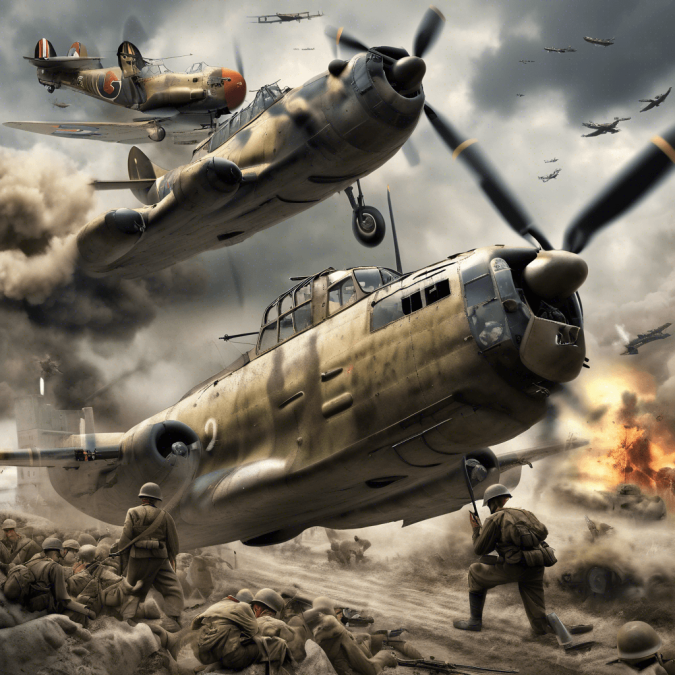
World War II is one of the most significant events in world history, with far-reaching consequences that still impact global politics, economics, and society today. The war lasted from 1939 to 1945, involving countries from all corners of the globe and resulting in a staggering loss of life and destruction.
The origins of World War II can be traced back to the aftermath of World War I, when the Treaty of Versailles imposed harsh penalties on Germany, leading to economic hardship and political instability. Adolf Hitler and the Nazi Party rose to power in Germany in the 1930s, with a desire to expand German territory and establish dominance over Europe. Meanwhile, Japan sought to expand its empire in Asia, leading to conflict with China and other neighboring countries.
The war officially began on September 1, 1939, when Germany invaded Poland. This prompted Britain and France to declare war on Germany, marking the beginning of a brutal six-year conflict that engulfed the entire world. The Axis powers, led by Germany, Italy, and Japan, fought against the Allied powers, which included Britain, the United States, the Soviet Union, and other countries.
As the war progressed, it became increasingly brutal and devastating. The Holocaust, in which six million Jews were systematically murdered by the Nazis, shocked the world and highlighted the horrors of genocide. Battles raged across Europe, Africa, and the Pacific, resulting in millions of casualties and widespread destruction.
The turning point of the war came in 1942, with major Allied victories at the Battle of Stalingrad and the Battle of Midway. The tide began to turn against the Axis powers, as Allied forces pushed back and eventually defeated the Axis powers on multiple fronts. The war culminated in the unconditional surrender of Germany and Japan in 1945, bringing an end to the deadliest conflict in human history.
The aftermath of World War II had profound effects on Europe and the world as a whole. The war left much of Europe in ruins, with cities devastated and economies in shambles. The post-war period saw the emergence of the United States and the Soviet Union as the two superpowers, leading to the Cold War and decades of tension between East and West.
The establishment of the United Nations in 1945 marked a new era of international cooperation, aimed at preventing future conflicts and promoting peace and security. The Nuremberg Trials held after the war brought Nazi war criminals to justice and established principles of international law that still guide the world today.
The war also led to dramatic shifts in colonial empires, as European countries began to decolonize and grant independence to their colonies in Africa and Asia. The devastation of World War II served as a wake-up call to the world, highlighting the need for collective action to prevent similar conflicts in the future.
In conclusion, World War II was a dark chapter in human history, but it also laid the groundwork for a more peaceful and prosperous world. The sacrifices made by millions of people during the war served as a reminder of the importance of working together to build a better future for all. The legacy of World War II continues to shape global politics and society today, reminding us of the importance of learning from the past and striving for a more just and peaceful world.
